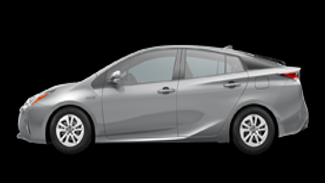Let’s start with a special thanks to the Toyota Prius for bringing the word hybrid into the mainstream. Using a combination of electric and gasoline-powered motors, the Prius introduced the world to a lower emission, higher gas mileage alternative to the traditional automobile. The original Prius was purpose-built to deliver low emissions with power as a secondary concern. The total power train could deliver about 98 horsepower but it was possible to get 2 to 3 times the gas mileage of a gas engine alone. Styling seemed secondary to the goal of delivering an affordable alternative to the gasoline-only vehicles on the road.

The application for the Prius was about addressing at least two problems involving air quality and the cost of gasoline. Initial adopters were drawn to the vehicle because it was more environmentally-friendly and offered much better gas mileage. But others took notice of an important advantage of the electric motor over the traditional gas-powered motors. The electric motor can deliver instantaneous torque leading to the potential for incredible acceleration in a vehicle.
Porsche applied this concept to the Porsche 918 by putting one electric motor to help power the front wheels and one for the rear wheels. These motors generate an additional 279 horsepower to supplement the 608 horsepower gasoline engine. Was Porsche interested in creating a high-performance hybrid to appeal to the same group of environmental needs as the Prius? Hardly. The 918 has an all-electric range of 12 miles. It seems Porsche wasn’t as interested in saving the environment as they were in harnessing the instant torque of the electric motor to boost performance.

The results were incredible: a car capable of 0-60 in 2.5 seconds with a top speed of 214 mph followed by the fastest lap by a production car in the history of the Nürburgring track. Using a similar premise as Toyota, Porsche created one of the highest performance supercars in history.
So what exactly does this have to do with hybrid cloud? The purpose of the Prius and the 918 were very different yet they both accomplished their respective objectives using the same concept. The same can be said with users of hybrid cloud. For many it will accomplish utilitarian purposes similar to the Prius. Consider a situation where data must be archived and kept offsite for some period of time. A hybrid cloud solution could involve copying the data to a cloud provider and marking it for deletion at the end of the compliance period. This could result in lower storage costs with higher durability and availability. Other users could leverage a hybrid cloud deployment for disaster recovery using tools from Veeam or Zerto.
For others, hybrid cloud is about addressing performance needs. These users will consider hybrid cloud to handle bursty traffic during peak holiday seasons or to process big data to get results in a short period of time. Still others will leverage hybrid cloud to create active-active environments with workloads that move dynamically. In these situations, hybrid cloud is about performance.
Hybrid cloud can play a role in solving many different problems from simple replication to complex redundancy. The question is do you need a Prius or do you need a Porsche?

